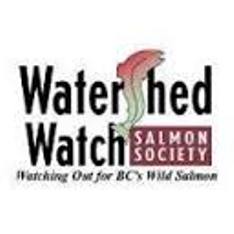Fishermen can harvest more fish from healthy salmon runs, while affording greater protection to threatened runs in BC, if consumers eat more salmon from “stock-selective” fisheries. That’s the message delivered by fishermen, First Nations, renowned chef Robert Clark, Professor John Reynolds from Simon Fraser University, and leading conservationists in an illuminating new short film narrated by Vancouver-based actor, Bruce Greenwood.
The 16-minute video was produced by Screaming Black Dog Productions for Watershed Watch Salmon Society and SkeenaWild Conservation Trust.
“As conservationists, we’re tired of always telling the public about problems in our wild salmon fisheries,” said Aaron Hill, an ecologist with Watershed Watch. “Today, we are thrilled to be promoting a solution for consumers that allows for both strong fisheries and strong, healthy salmon runs.”
The video explains how status quo fishery management allows for too much “mixed-stock” fishing, where healthy and endangered salmon stocks are harvested indiscriminately, and not enough “stock-selective” fishing, where endangered stocks are avoided.
“If we focus more fishing on areas where only healthy stocks are being harvested, we can catch just as many fish, while allowing endangered stocks to rebuild,” said Greg Knox, Executive Director of Skeena Wild. “By explaining these simple facts to the public, we’re hoping to increase consumer demand for fish that have been harvested in truly sustainable fisheries.”
“Most eco-savvy seafood consumers know to only buy wild salmon, and give open-net raised farmed salmon a pass,” said Marcel Shepert, from the Inland Salmon Producers Association, a group representing numerous First Nations commercial fishermen conducting stock-selective fisheries. “But surely those same responsible consumers don’t want to be inadvertently putting fish from endangered stocks on their dinner tables. This video explains why our fisheries give consumers the most sustainable salmon products that money can buy, and why that’s important.”
Chief Wilf Adam of the Lake Babine Nation applauded the public message for more selective fishing: “It is so important for the public to understand why we need to change the way we fish for salmon in BC. And we’re not talking about something new and untested. We’re talking about using fishing spots and methods that provided huge but sustainable salmon catches to our people for thousands of years.”
The video can be viewed here: http://youtu.be/_ysC9MlUzSk
The trailer can be viewed here: http://youtu.be/9oppqDKduUA



Be the first to comment on "We can save our salmon and eat them too"